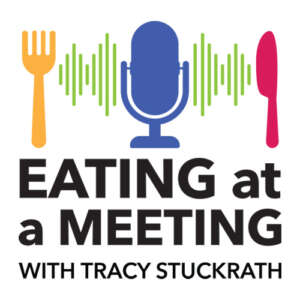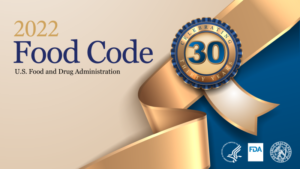Why Food Safety at Events Matters
In December 2023, Skift Meetings shared its MegaTrends for 2024 to help event and meeting professionals unlock the future of the meetings industry. Recently, my friend and Skift Meetings Editor-in-Chief Miguel Neves revisited those trends in the insightful article, “Megatrends vs. Reality: How Accurate Were Skift Meetings’ 2024 Event Industry Predictions?” In it, Miguel thoughtfully analyzed each trend to explore what they got right, what they missed, and what’s “still percolating.”
It’s rare to see trends revisited at the end of the year, and the insights are invaluable. I want to focus on one trend in particular: “Events Focus on Being Safe Spaces for All.”
I wholeheartedly agree with the emphasis on building trust, addressing psychological safety, and fostering inclusivity. However, there’s another essential layer to this conversation that often goes overlooked: Food Safety at Events.
While event food service providers are skilled and diligent in delivering exceptional culinary experiences, managing food allergens and dietary needs remains an area with significant room for improvement. Time and again, meeting planners and attendees voice frustrations about persistent gaps in food safety that undermine not just physical safety but also trust and inclusivity. These challenges, which include:
- Allergen labeling that is incorrect or absent.
- Staff knowledge of the food they are serving is limited.
- Safety protocols are inconsistent at best.
…are not unique to 2024 or specific events I’ve attended and heard about. They are ongoing, systemic issues that the industry must address collectively to make food safety an integral part of creating truly safe spaces for all.
Trust and Safety Go Hand-in-Hand
In the 2024 report, Skift Meetings highlights how trust in events begins at the earliest planning stages. Attendees must feel confident that organizers are anticipating their needs, from the physical safety of the venue to the psychological safety of participating in discussions and activities. Food safety is an integral part of this trust. When dietary needs are ignored, allergens are mislabeled, or staff are unprepared to manage requests, trust erodes.
By prioritizing food safety, meeting professionals — planners and food service providers — can demonstrate their commitment to making every attendee feel valued, safe, and included.
Let’s examine some critical developments from 2024 that could reshape food safety in events moving forward:
Disney Springs/Ragland Road Irish Pub Lawsuit
The wrongful death lawsuit involving Disney Springs and Raglan Road Irish Pub tragically underscores the severe consequences of food allergen mismanagement. In this case, a guest with severe nut and dairy allergies specifically requested a meal free of these allergens. She was assured her meal was safe, but shortly after consuming it, she suffered a fatal allergic reaction. The medical examiner’s investigation determined she died as a result of “anaphylaxis due to elevated levels of dairy and nut in her system,” which she is allergic to.
While this incident occurred in a restaurant, its implications extend far beyond that. It highlights the critical need for clear and accurate communication between front-of-house and back-of-house teams in any food service environment, including events. The case raises urgent questions for meeting planners, catering teams, and venue operators: How are dietary requests being communicated? What systems are in place to ensure compliance? How are staff trained to handle food allergens safely?
This lawsuit also brings attention to the legal accountability of various stakeholders, from individual servers to the organizations hosting events. It serves as a somber reminder of the life-or-death stakes tied to food safety protocols, not just for restaurants but for the meetings and events industry as a whole.
 For a deeper dive into the legal implications of this case—spanning responsibilities for meeting planners, hotels, restaurants, and even landlords—listen to Eating at a Meeting Episode #275, “Disney Food Allergy Case: Legal Viewpoints re: Events Before it Reaches Court with attorneys Mary Vargas, Joshua Grimes, and Ryan Gembala . Their insights shed light on what the industry must learn from this tragedy to prevent similar outcomes in the future. t could reshape food safety at events moving forward:
For a deeper dive into the legal implications of this case—spanning responsibilities for meeting planners, hotels, restaurants, and even landlords—listen to Eating at a Meeting Episode #275, “Disney Food Allergy Case: Legal Viewpoints re: Events Before it Reaches Court with attorneys Mary Vargas, Joshua Grimes, and Ryan Gembala . Their insights shed light on what the industry must learn from this tragedy to prevent similar outcomes in the future. t could reshape food safety at events moving forward:
United Airlines and Celiac Accommodations
A lawsuit filed by a United Airlines pilot with celiac disease leverages the Americans with Disabilities Act Amendments Act (ADAAA), which recognizes food allergies and celiac disease as disabilities. This case could be pivotal for corporate dining and event catering, building on precedents set by landmark settlements in
higher education.
The 2012 Lesley University settlement established that failure to accommodate individuals with food allergies could violate the ADA. The settlement required the university to provide allergen-free food options, modify meal plans, and implement comprehensive training for food service staff to ensure safety and inclusion. The agreement emphasized that food allergies and celiac disease qualify as disabilities, entitling individuals to reasonable accommodations in any setting where food is served.
Similarly, the 2019 Rider University settlement underscored these responsibilities. Following a Department of Justice investigation, Rider agreed to adopt policies and training to ensure students with dietary restrictions could access safe, allergen-free meals, reinforcing the necessity of proactive food safety and inclusion measures.

The United Airlines lawsuit brings these principles into a corporate and event catering context, further highlighting the industry’s responsibility to provide safe, inclusive dining experiences. As the food service and events industry continues to address these evolving food safety expectations, the case is a powerful reminder that food safety and accessibility are not just best practices—they are legal and ethical imperatives.
For more insights on the ADA’s a pplication to food and beverage, tune in to: Eating at a Meeting Episode #278 — “Food Allergies and the ADAAA: A Deep Dive into Legal Protections” with Attorney Laurel Francoeur and Epsiode #223 — “Fueling Success at Work: How to Optimize Employee Dietary Needs” with Teresa Goddard of the Jobs Accommodations Network.
pplication to food and beverage, tune in to: Eating at a Meeting Episode #278 — “Food Allergies and the ADAAA: A Deep Dive into Legal Protections” with Attorney Laurel Francoeur and Epsiode #223 — “Fueling Success at Work: How to Optimize Employee Dietary Needs” with Teresa Goddard of the Jobs Accommodations Network.
The Death of Influencer Dominique Brown
Dominique Brown, an influencer attending an event, tragically passed away after being assured the food she was served was allergen-free. Despite disclosing her severe food allergies and receiving assurances of safety, she suffered a fatal allergic reaction.
While the investigation into her death is ongoing and the incident occurred less than a month ago, this heartbreaking case highlights the critical importance of accurate allergen labeling, clear communication, and comprehensive staff training.
This incident raises many questions: Were proper protocols followed? Was staff adequately trained to handle dietary requests? How can events prevent similar tragedies in the future? Every meeting professional must address these questions, which underscore the life-or-death stakes of food safety at events.
See ” Food Allergies: A Critical Safety Priority for Meeting Professionals ” for an in-depth discussion of why food allergy management is a critical safety priority for meeting professionals.
The Sergio Lopez Food Allergy Awareness Act
Texas’ Sergio Lopez Food Allergy Awareness Act honors the life of Sergio Lopez, whose tragic death from a food allergic reaction inspired this critical legislation. The act, driven by the unwavering advocacy of Sergio’s mother, Belinda Vaca, requires food establishments to display allergy awareness posters and mandates allergen training for food handlers.
This law represents a significant step forward in educating teams on the risks of food allergies and preventing similar tragedies.
 Hear Belinda Vaca’s heartfelt story in Eating at a Meeting Episode #220, “Powerful Story of Belinda Vaca: A Mother’s Fight for Food Allergy Awareness,” and explore its broader implications in this blog post.
Hear Belinda Vaca’s heartfelt story in Eating at a Meeting Episode #220, “Powerful Story of Belinda Vaca: A Mother’s Fight for Food Allergy Awareness,” and explore its broader implications in this blog post.
 Adoption of the 2022 FDA Food Code
Adoption of the 2022 FDA Food Code
The 2022 FDA Food Code introduced significant updates to food safety guidelines, including the addition of sesame as the ninth major food allergen regulated by the FDA. The code also recommends labeling unpackaged and bulk food items—such as buffet dishes and bakery displays—with the top nine allergens: milk, eggs, fish, shellfish, tree nuts, peanuts, wheat, soy, and sesame.
While this recommendation is a step forward for allergen transparency, its voluntary nature limits its impact. The FDA Food Code guides states and local jurisdictions, resulting in uneven adoption and enforcement. Currently, seven states and territories—Pennsylvania, Colorado, Ohio, Mississippi, Connecticut, Illinois, Utah, the U.S. Virgin Islands, and Puerto Rico—have begun implementing the 2022 Food Code. However, this fragmented adoption creates inconsistencies in food safety practices across the country, leaving gaps in protection for individuals with dietary needs.
These inconsistencies pose unique challenges for meeting professionals and event planners. Events often span multiple states with varying regulations, and catering partners may have different levels of commitment to food safety. Ensuring accurate allergen labeling and consistent safety protocols across vendors isn’t just a nice to have—it’s essential.
Meeting organizers can lead the charge in bridging these gaps, but collaboration is required. Catering vendors must step up and provide clear and accurate allergen labeling, regardless of the state in which the event is held. Organizers can drive change by setting clear expectations in vendor contracts and developing robust standard operating procedures (SOPs) to ensure safety and consistency. These actions protect attendees and push the industry toward better practices, even in states that haven’t adopted the 2022 FDA Food Code.
Take Action on Food Safety at Events
Food safety isn’t just about preventing harm—it’s about fostering trust, building inclusivity, and creating environments where everyone can thrive. As we move into 2025, let’s:
- Ask Attendees: Gather and follow up on dietary needs to ensure no one goes hungry or feels excluded.
- Require Accountability: Work with vendors to implement clear labeling and consistent safety protocols.
- Build SOPs: Develop and enforce procedures that ensure safety and inclusivity.
- Train Staff: Equip teams with the knowledge to serve all guests safely.
Every meal matters. Let’s move beyond aspirations and take actionable steps to prioritize food safety at events
If you’re looking for expert guidance to elevate your food and beverage planning, I’m here to help. Whether designing custom SOPs and contract clauses, labeling food items for allergens, or reviewing menus to ensure inclusivity for all attendees, I can work with you to create safe, inclusive, and memorable events for every guest.
You can also explore these critical topics by listening to my Eating at a Meeting podcast or enrolling in the soon-to-be-relaunched Every Meal Matters course. Let’s create a safer and more inclusive future for every attendee.




